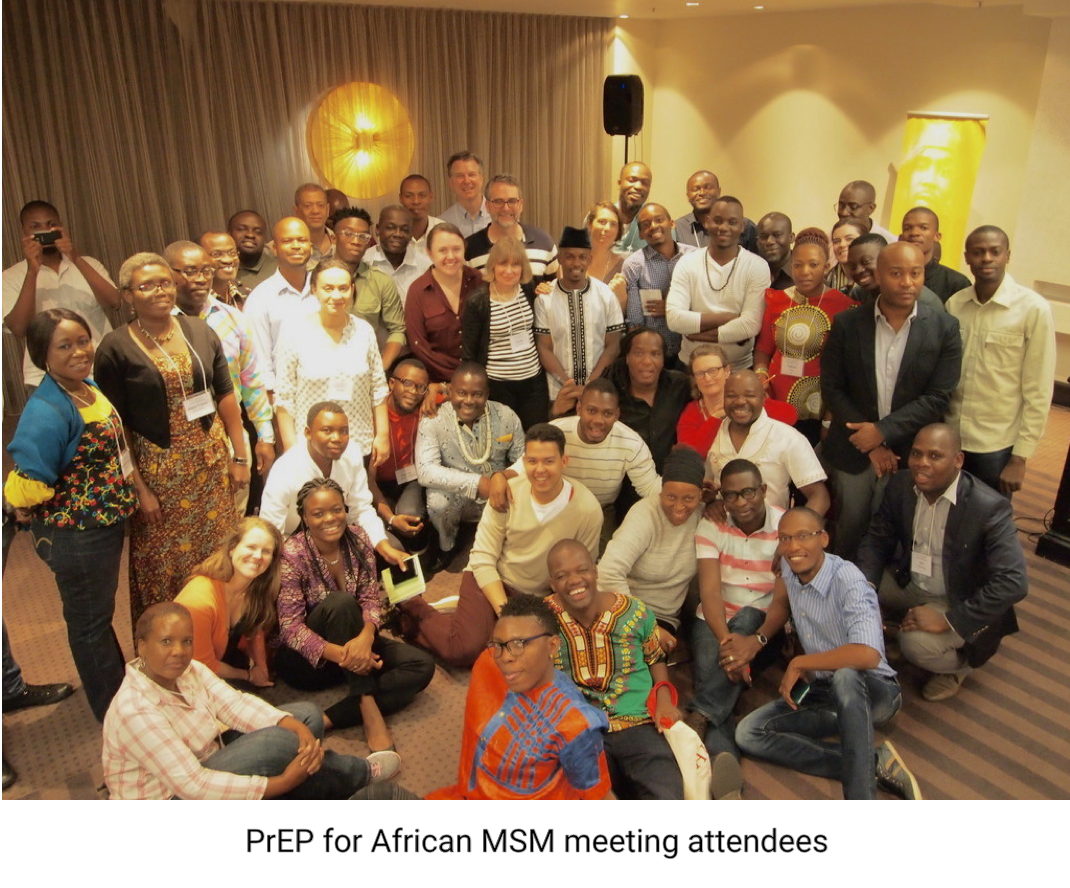May 10, 2016
It’s been 12 years since I first encountered the notion of PrEP, which was at the AIDS 2004 conference in Bangkok. Before activists trashed Gilead’s booth for alleged trial misconduct, I sat in a session listening to then-Family Health International (now FHI 360) describe its trial designed to see if daily oral tenofovir could prevent HIV in sex workers in Cambodia. I was intrigued by the idea but later on, after several of the PrEP trials were shut down in a swarm of controversy, I lost both hope and track of the trajectory of PrEP. Fast forward over a decade later and PrEP is poised to become a success story. This is why last week’s meeting of mostly gay African men devising advocacy plans for PrEP access felt long overdue, but also perfectly timed.
First of all, the meeting, which was spearheaded by a coalition of out, proud, gay African men from AMSHeR, AVAC, Desmond Tutu HIV Foundation and MSMGF, among others, fell right in the wake of the musician Prince’s death. The gender-bending legend broke all rules about what black men should be and took ownership of his own path. Likewise, the PrEP meeting of over 80 participants made history as the largest gathering of gay and MSM African men to demand PrEP for HIV prevention as part and parcel to achieving social justice.

Keletso Makofane (MSMGF and Anova Health) summarized the importance of PrEP when he opened the meeting by stating, “PrEP is overdue but supposed to be delivered by the very systems that are failing us.” He went on to explain that PrEP is necessary for gay men on the continent “because of its efficacy and prevention power and because of the excitement of having sex in a way we haven’t for 30 years.” He also asserted that PrEP could be used as a catalyst to improve HIV care and health services in general. This set the tone for the remainder of the meeting which mapped out how to bring PrEP to scale for gay and MSM communities in Africa.
It’s difficult to capture all that was shared in the three-day meeting but below are some recurring themes.
One of the agreed-upon tactics was to ally with other “key populations”—those over-burdened and underserved communities—so that the push for PrEP for gay men is embedded within the demand for PrEP for all those at substantial risk. This would help avoid gay “exceptionalism” of which there are already reported rumblings.
Convincing national governments that PrEP for MSM would not be an added burden to already strapped health systems is key. To get around this, participants discussed the need for innovative service models that minimize impact on doctors, perhaps through nurse-led PrEP implementation, community-based delivery and self-testing. There’s also a need to tap existing providers such as STI clinics and reproductive health units. Activists at the meeting also discussed that another key way to convince governments of PrEP’s worth and desirability is through costing studies looking at models of test and start along with PrEP.
Jim Pickett (IRMA), the formidable gay prevention activist with folk hero status, entertained participants with snapshots of PrEP promotions from around the globe. The audience was riveted by his hometown Chicago’s prep4love campaign, with pretty yet provocative pics of queer couples. But afterwards, some delegates were disheartened, saying they could not run such gay-forward campaigns in their countries. Not yet, at any rate.
Members from each of the 14 countries represented at the meeting caucused and drafted advocacy plans to jumpstart the post-meeting national coalition work. A WHO rep in attendance promised she’d take these national priorities directly to the WHO representatives of each country to be shared with their health ministers.
The meeting closed on an inspirational note. We now have a roadmap for PrEP as an entry point to bring real change, leading human rights activist and former AVAC Fellow Gift Trapence noted. Or, as another dearly beloved leader put it, “I got a lion in my pocket and baby he’s ready to roar.”